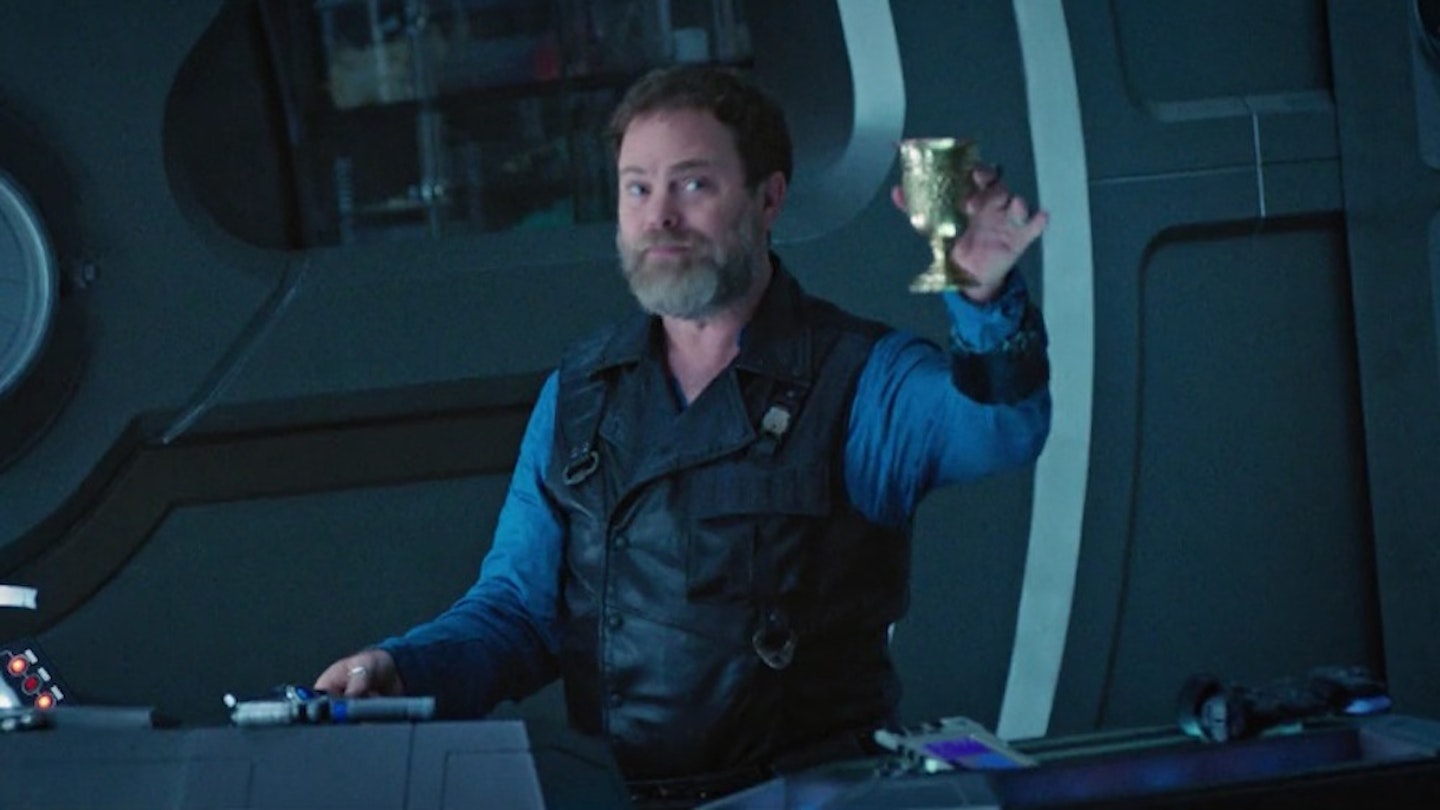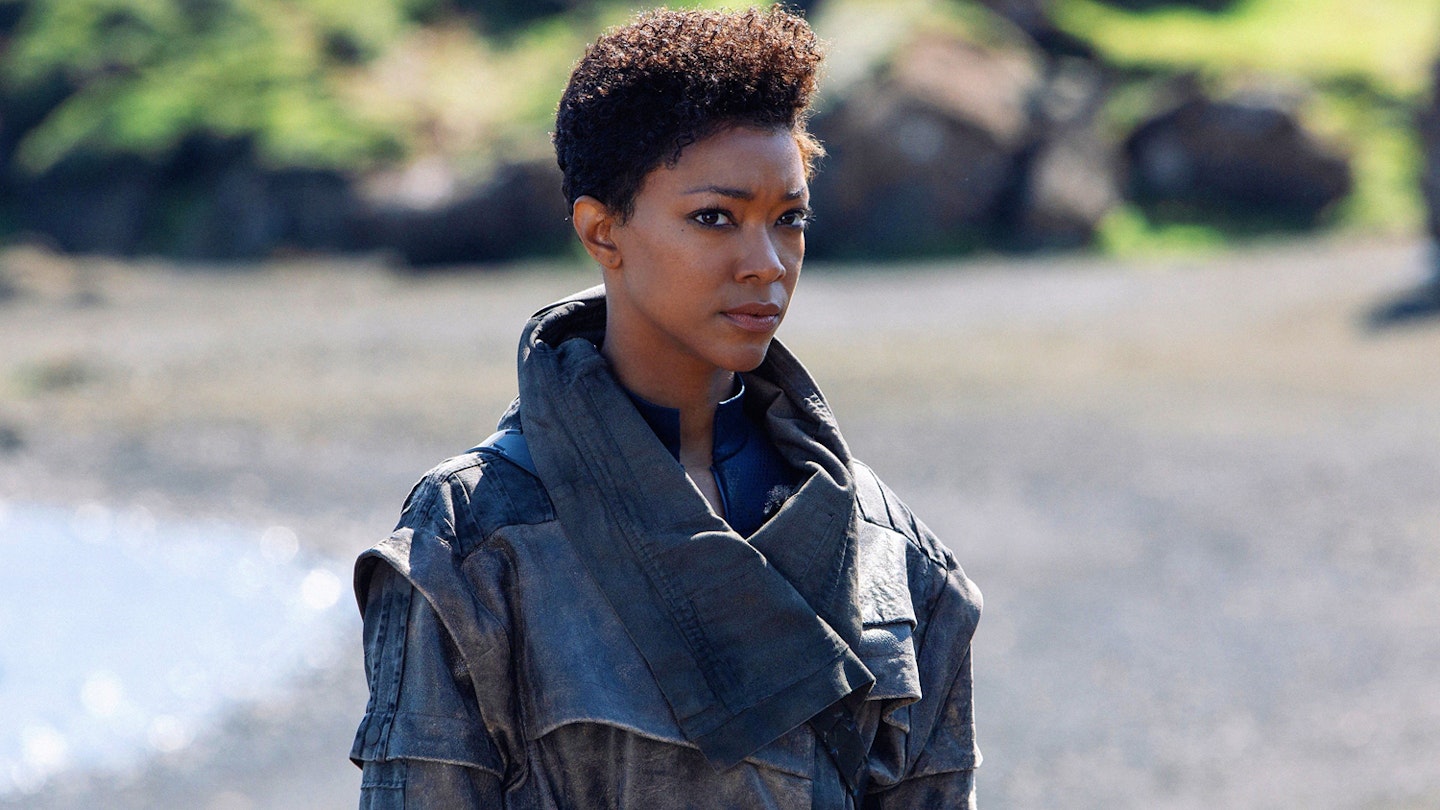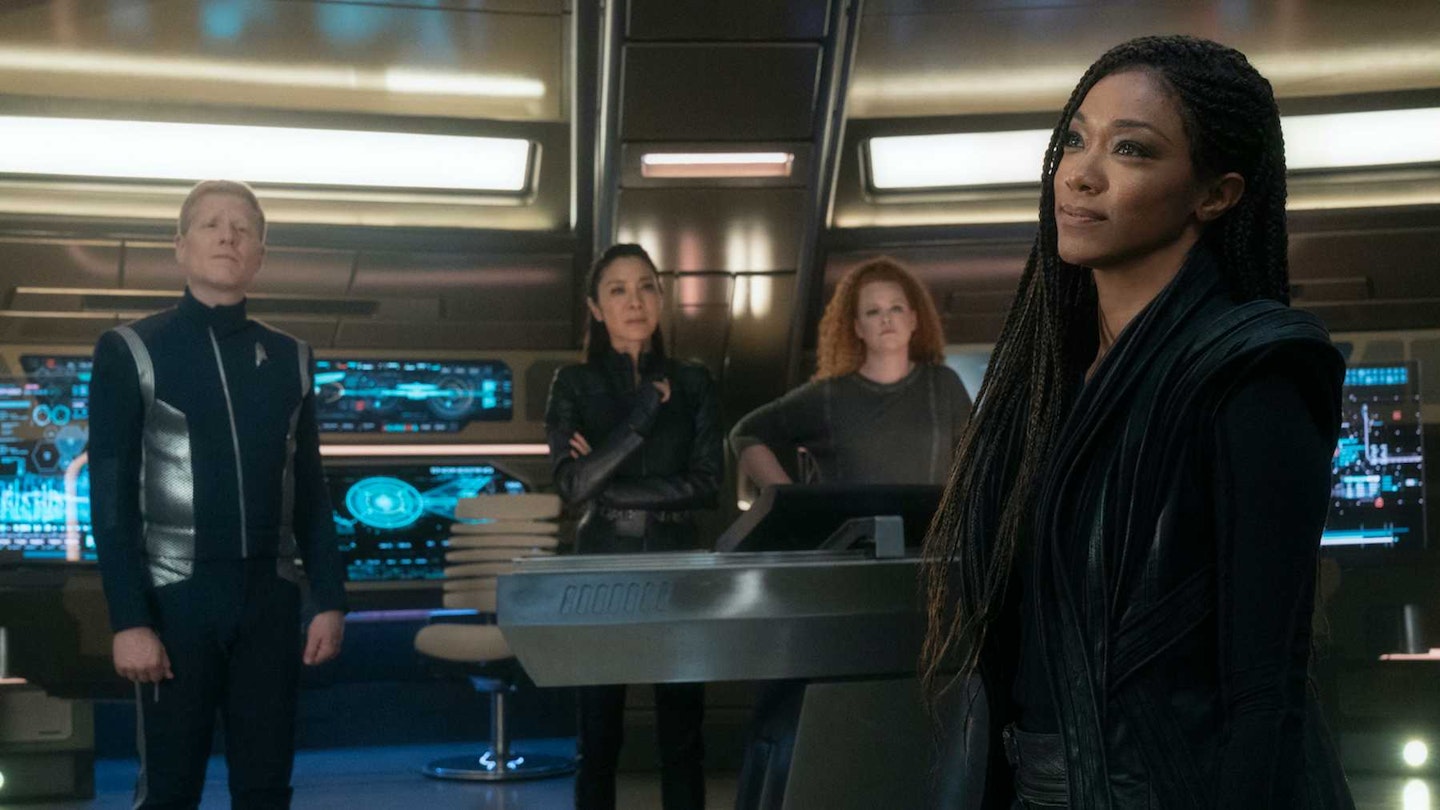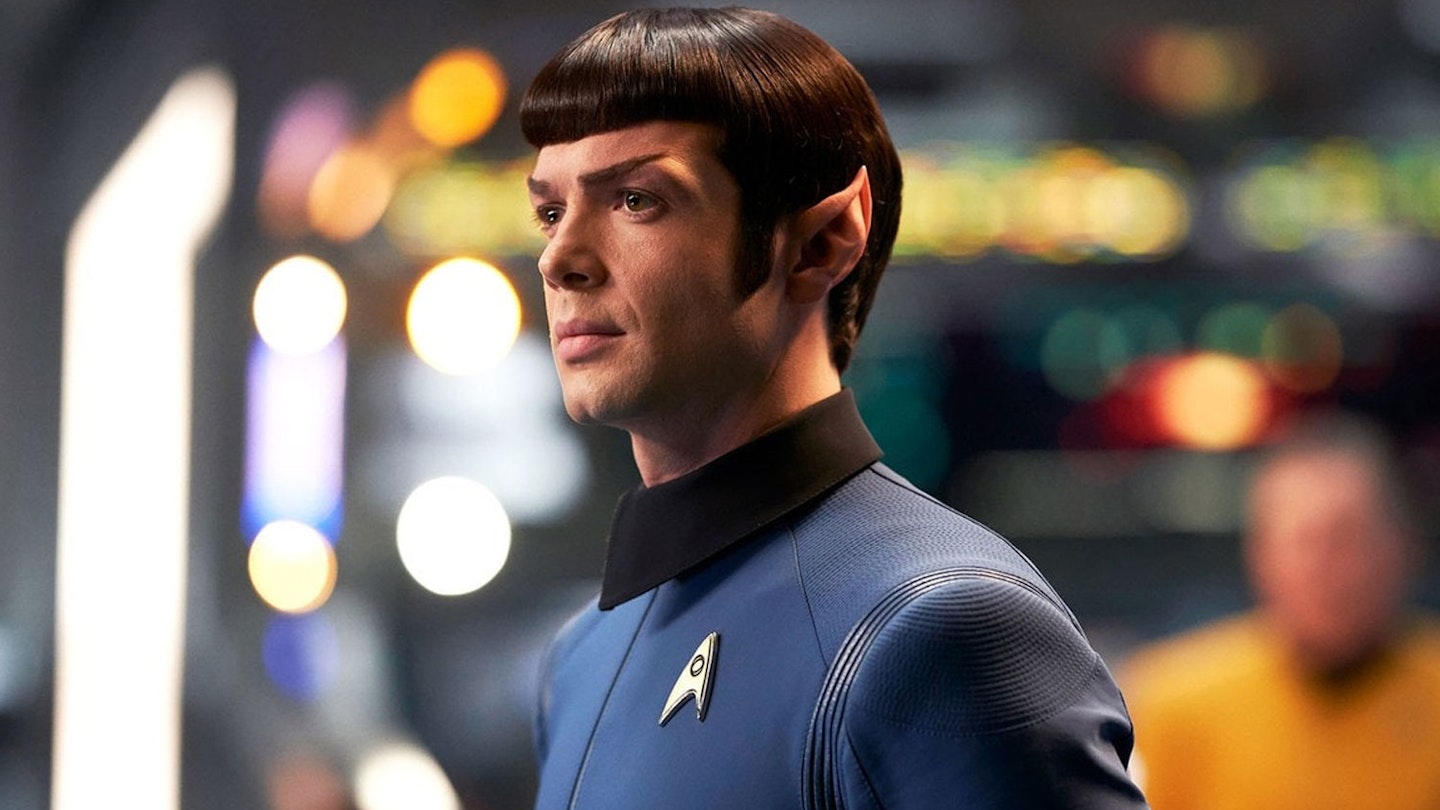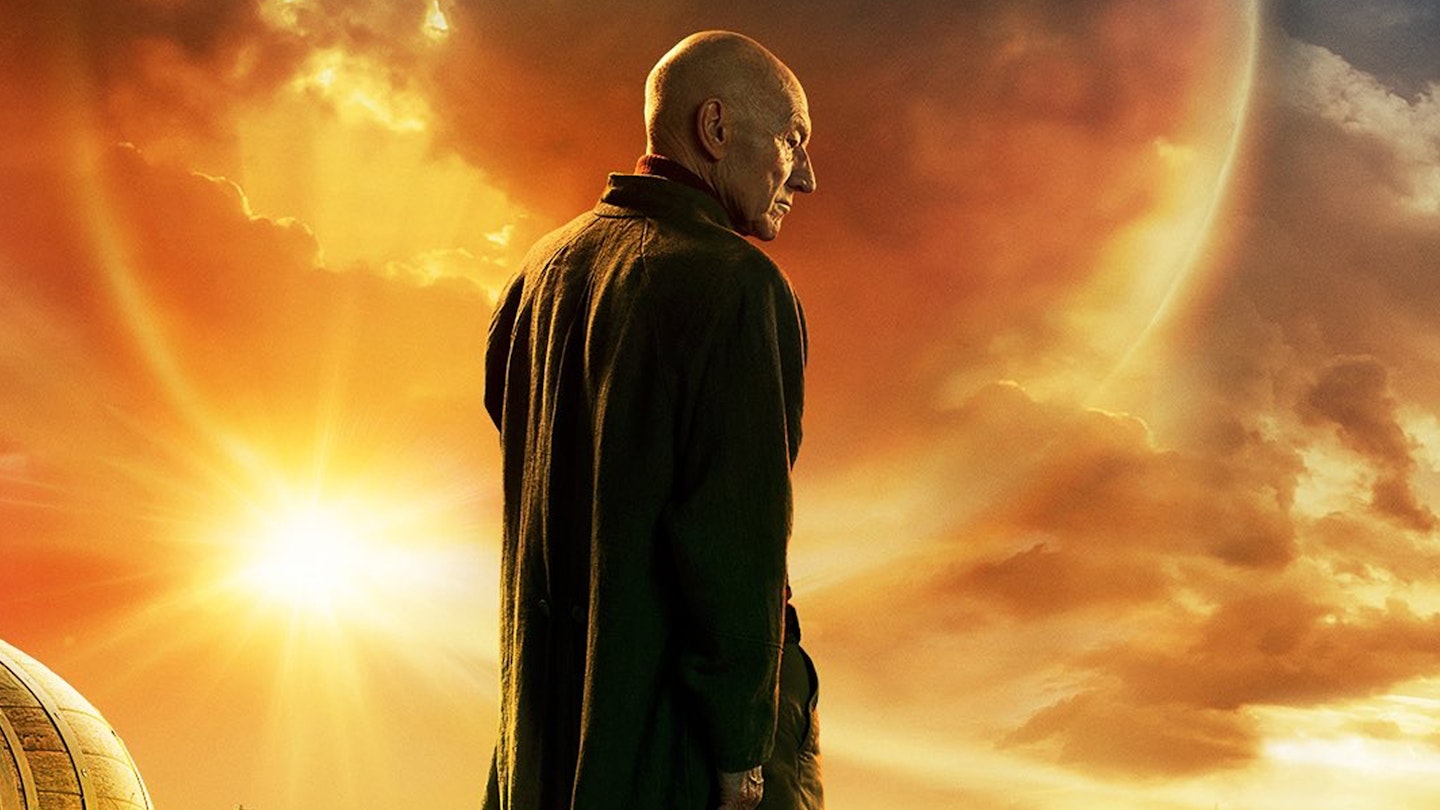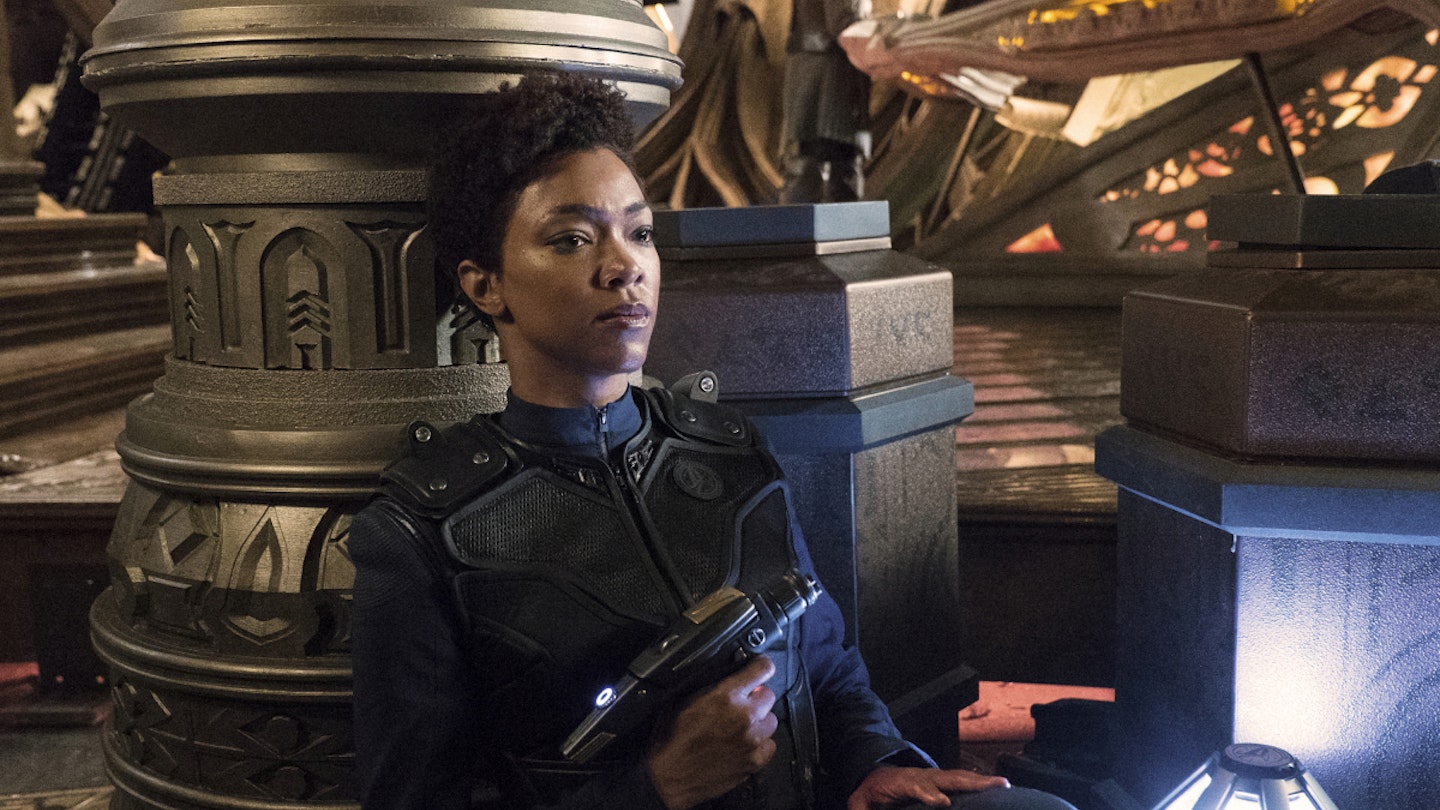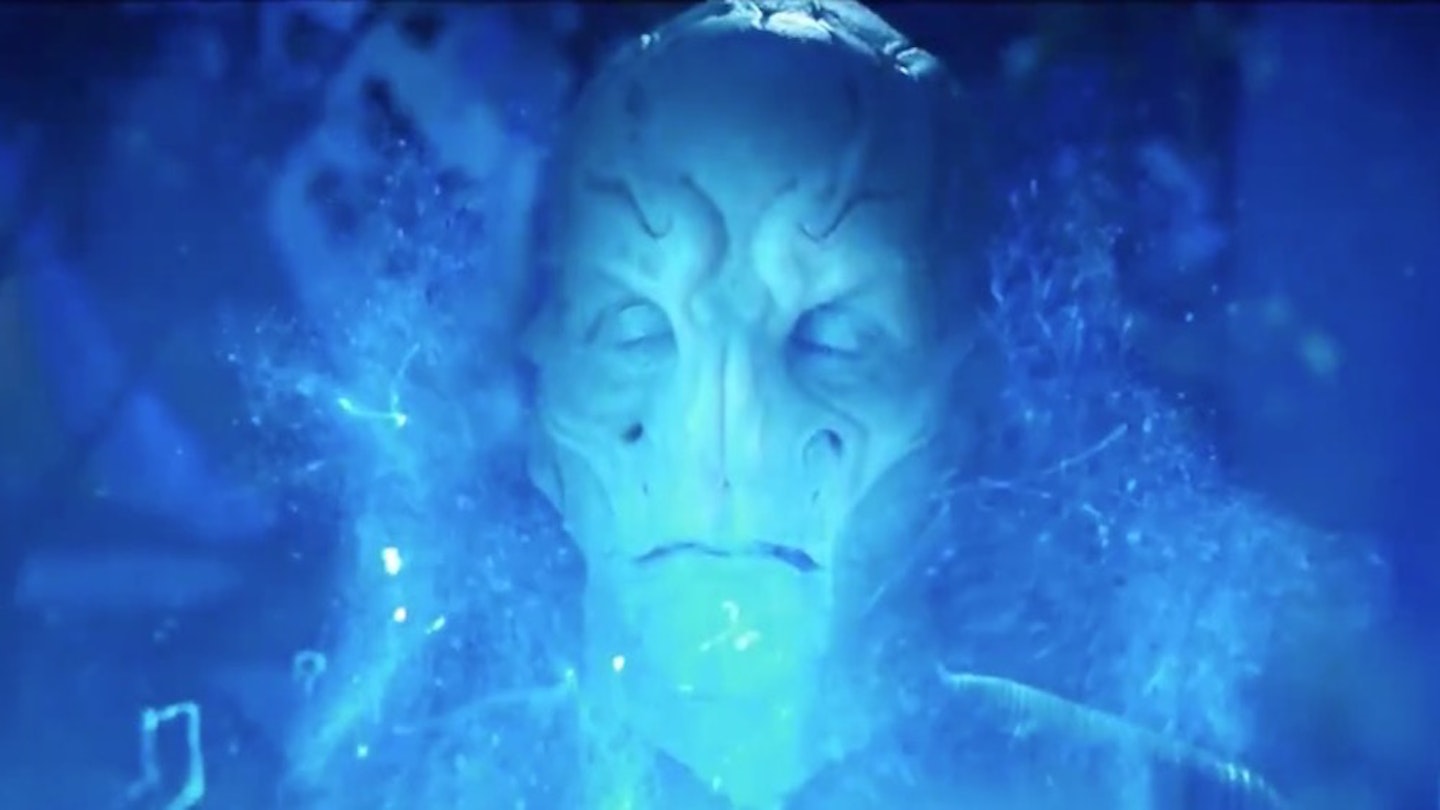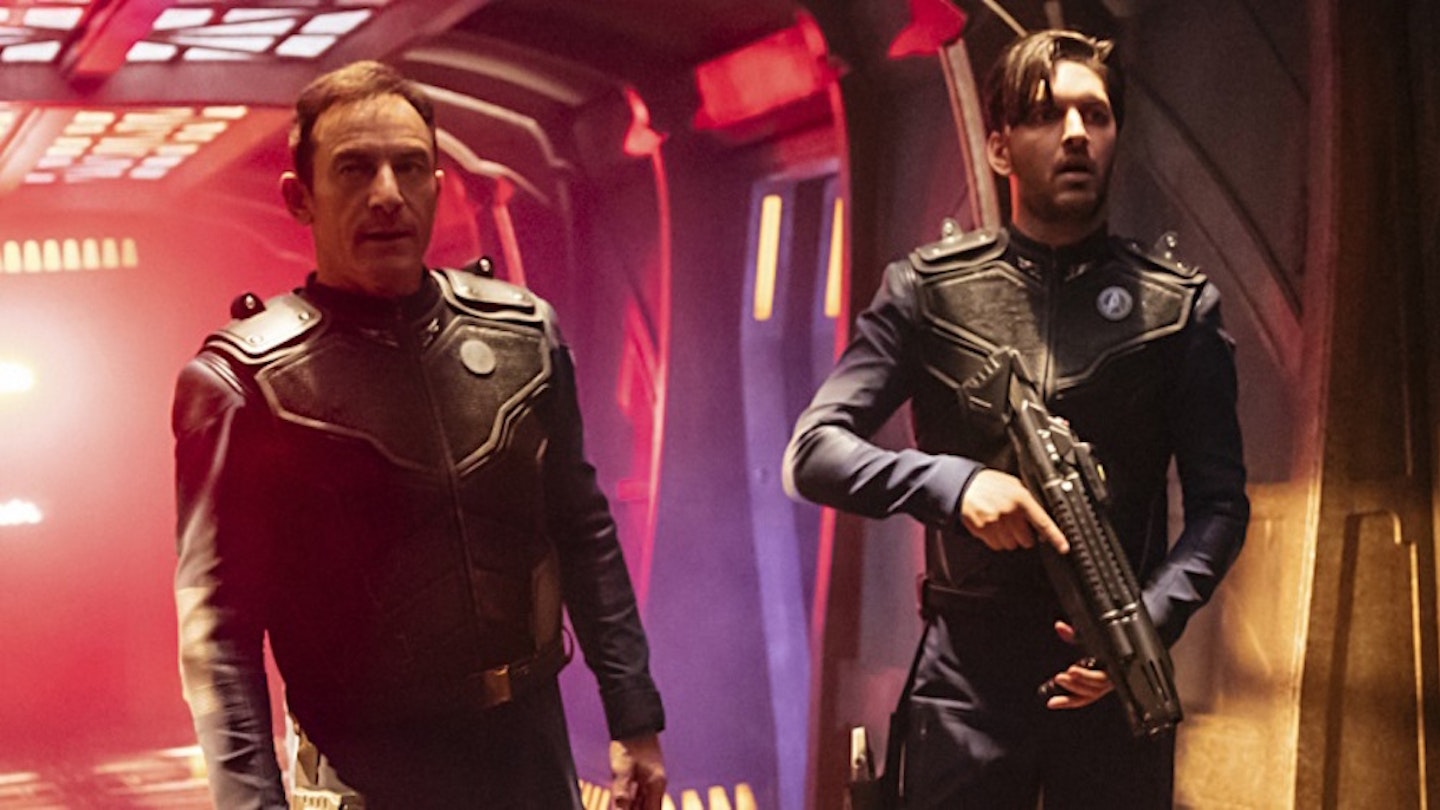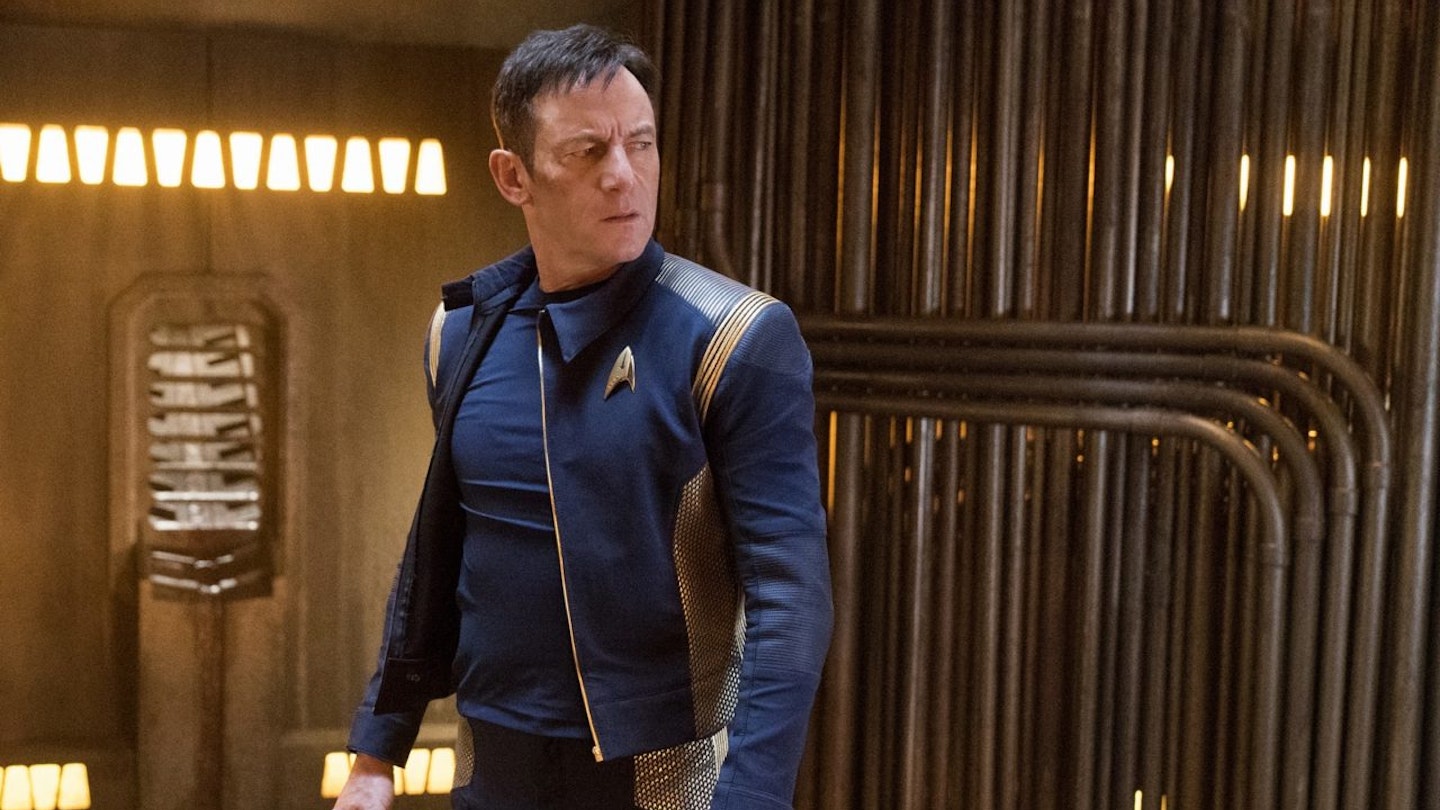Spoilers are coming toward you at warp speed, so you'd better have deflectors on full
Previously on Star Trek: Discovery: Episode 1: “The Vulcan Hello”; Episode 2: “Battle at the Binary Stars”; Episode 3: “Context is For Kings”; Episode 4: "The Butcher's Knife Cares Not For The Lamb's Cry"; Episode 5: "Choose Your Pain"; Episode 6: "Lethe"
Cast: Sonequa Martin-Green (Michael Burnham), Doug Jones (Saru), Shazad Latif (Ash Tyler), Anthony Rapp (Paul Stamets), Mary Wiseman (Sylvia Tilly), Jason Isaacs (Captain Gabriel Lorca), Emily Coutts (Keyla Detmer), Wilson Cruz (Dr. Hugh Culber), Kenneth Mitchell (Kol); Guest Cast: Rainn Wilson (Harry Mudd); Written by Aaron Eli Colette and Jesse Alexander; Directed by Dvid M. Barrett.
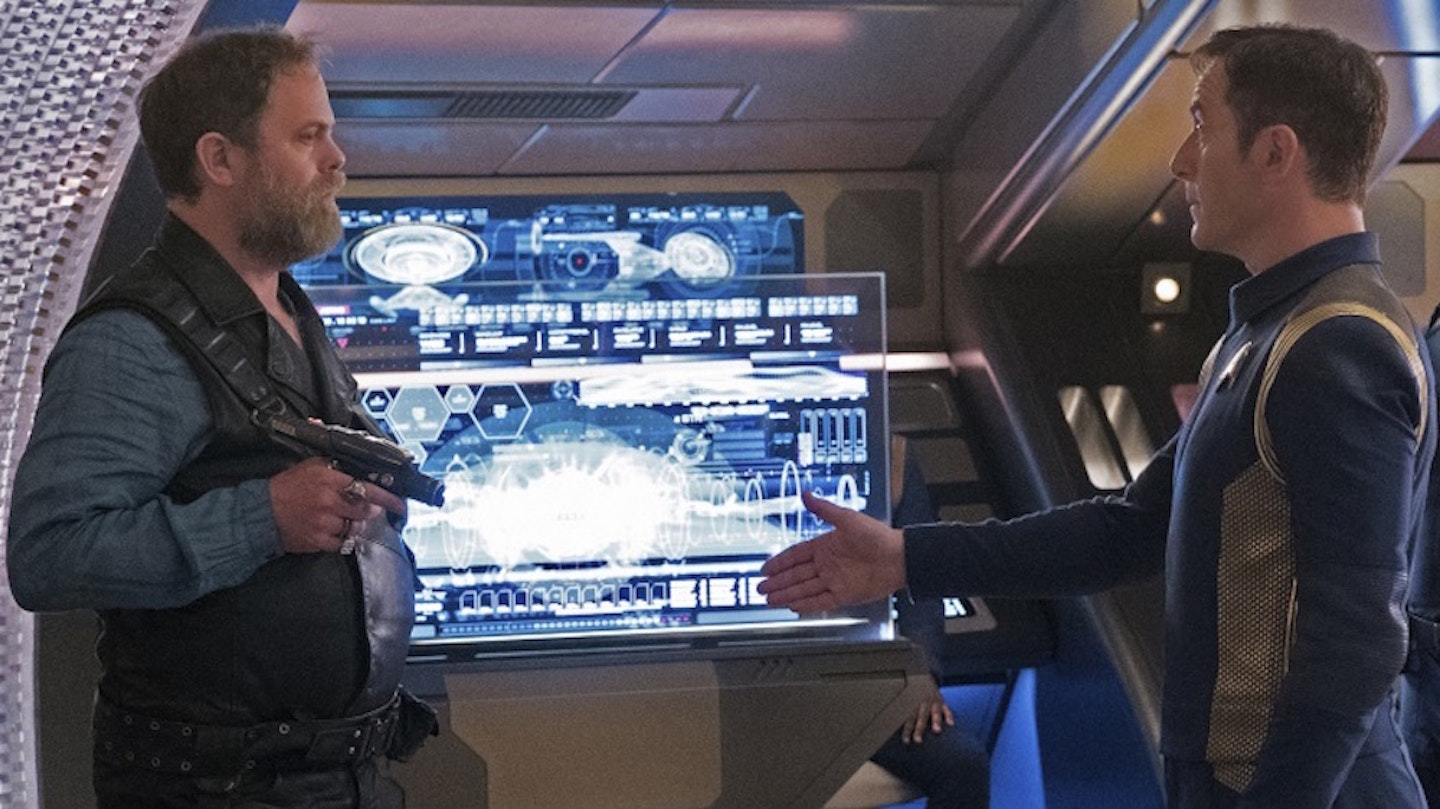
One of the challenges of doing a show that is designed to be serialized is that it becomes pretty tough to step out of that forward-reaching storyline to tell what are essentially standalone episodes. In episode six, “Lethe,” the story involving Burnham and Sarek was pretty standalone (and anti-climactic in the sense that we know damn well nothing is going to happen to Sarek since he lives into the Next Generation era), but at least there was the Lorca/Admiral Cornwell arc pushing the main story onward.
Now we’re into another one that involves Harry Mudd (the returning Rainn Wilson, who, admittedly, does a great job as the character).He's making his way to the Discovery and utilizing technology to trap the ship and its crew in a 30-minute time loop, during which (as things play out over and over again) he plans on discovering how the starship is winning the war so that he can sell the information and that technology to the Klingons. Along the way he takes great pleasure in killing Lorca again and again (last count, according to him, is fifty-three times) and causing the repeated destruction of Discovery.
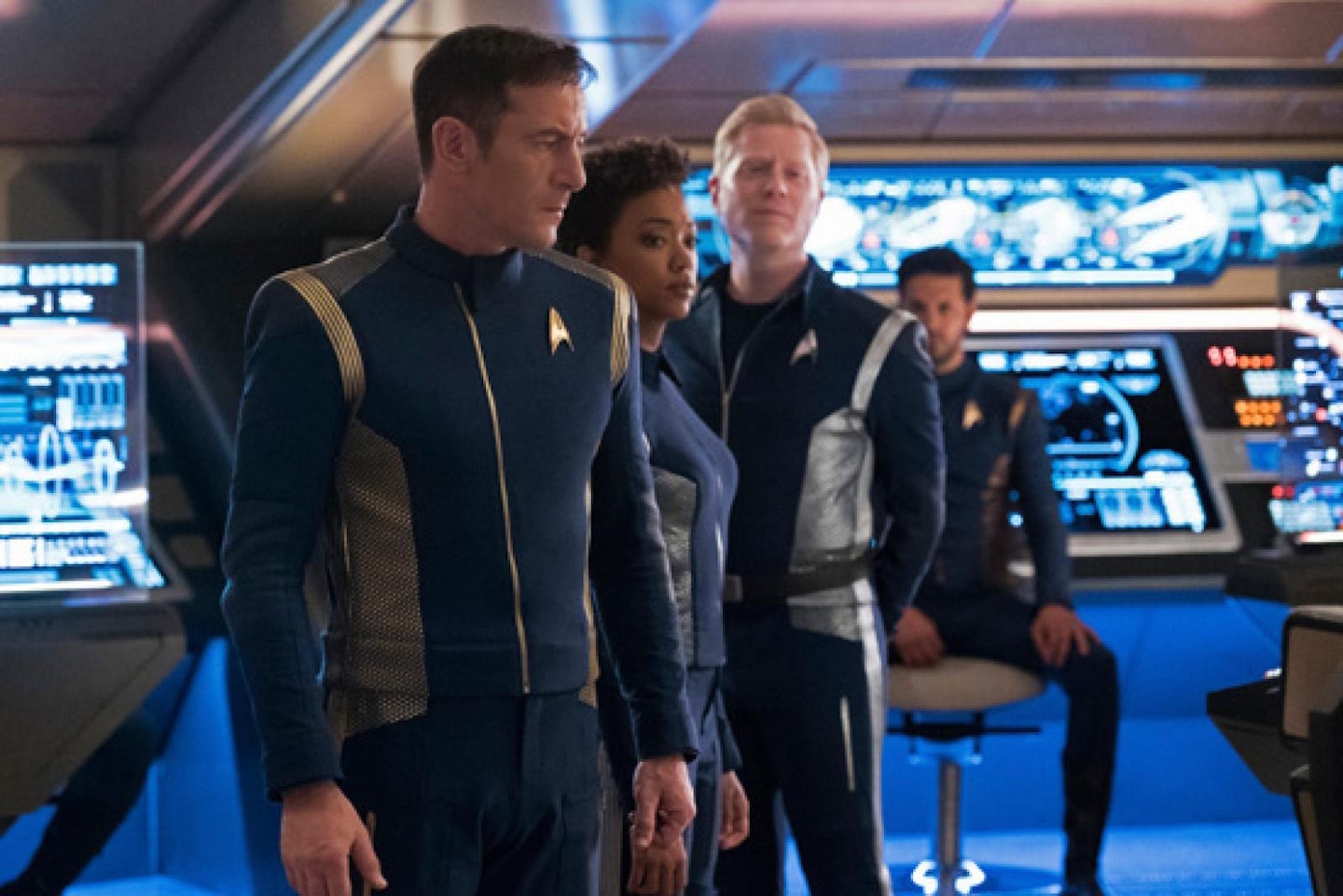
The only hope the ship really has comes in the form of Stamets, who, because of the tardigrade DNA being integrated into his own, has had glimpses into other universes and aspects of the space-time continuum. Therefore, and despite the fact that he comes across so trippy every time he speaks, he has an awareness that no one else has. Because of this, he is able to fill Burnham in quicker and quicker each time the time-loop re-engages, gaining her confidence in what he’s saying by having her tell him something she’s never admitted to anyone else so he can prove it (turns out she’s never been in love).
It comes to the point where it seems that Mudd has won. To stop the time loop and prevent his shipmates from being repeatedly murdered, Stamets tells him that he himself is the component that makes the spore drive work. Delighted, Mudd sends his coordinates to the Klingons, but as they’re approaching, Burnham identifies who she is and how valuable she would be to the Klingons...and then takes her own life. Recognizing that a fortune has just slipped away, he triggers the time loop one last time. But now Stamets is ready, and, after informing the necessary people, preparations are made to take on Mudd, which are launched after the thirty-minute window has lapsed and time has been set back on its proper course. Then Mudd discovers that the control he thought he had over Discovery has been usurped, and the “Klingons” he believed he had sent the ship’s coordinates to was actually to his “love” Stella and her arms dealer father. It turns out Mudd hasn’t been trying to get back to his supposed beloved, but away from her, despite the fact they were to be married. Now he has no choice but to go with them, and Stella’s father, feeling he owes Discovery for bringing his daughter back together with the man she loves, gives his word that Mudd won’t be bothering Starfleet again. Tyler accepts (though one would think that that acceptance should actually come from the captain) and they depart.
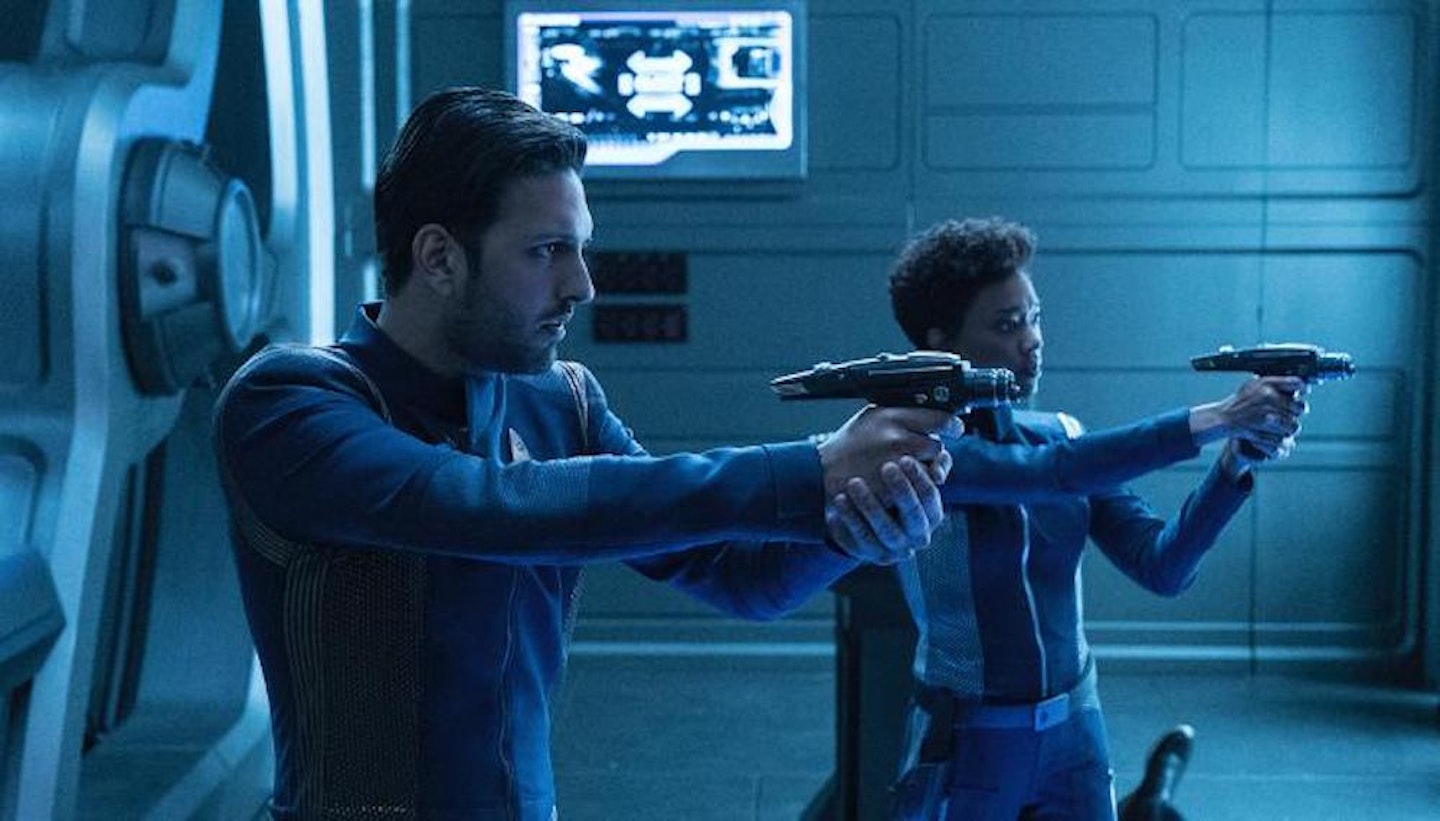
Parallel to all of this is the fact that although Burnham is starting to feel that she’s finding her place on Discovery, she is also trying to come to grips with the fact that she has developed feelings for Tyler (as he has for her). It’s actually Stamets that encourages her each time the time-loop re-engages and the two of them in one segment end up dancing with each other at a party that opens the episode every time it starts anew. In another, they end up kissing, and by the conclusion there’s obviously something there that will undoubtedly be explored later on.
One misstep the writers take is that just in case we’re not getting the concept that Burnham is lonely because she has devoted her life to her Vulcan studies and then her career in Starfleet, an injured space whale of sorts is brought aboard (which turns out to be a Trojan Horse for Mudd — the first time he arrives, he steps out of it, armed). In dialogue Burnham lets us know that the species is dying because it is so engrossed with being in the stars that it forgets to actually have a life and reproduce…. Oh, we see, that’s an allegory for Burnham’s situation. Got it.
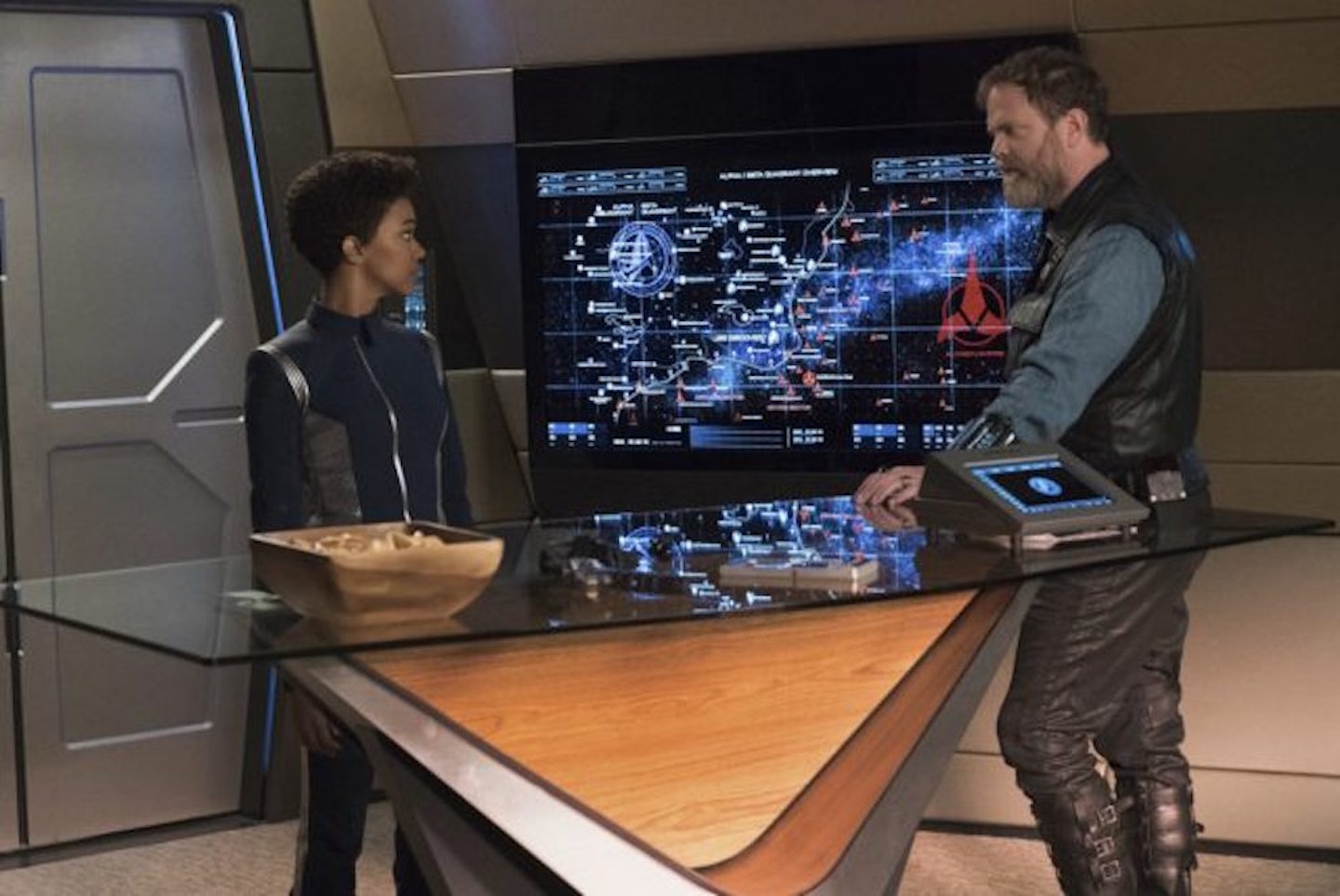
The idea of the time-loop feels like a bit of a throw-back to the kind of storytelling tropes that previous incarnations of Star Trek spent a bit too much time doing. In particular, this is reminiscent of The Next Generation’s “Cause and Effect,” in which Data was the only one who sensed that something wasn’t right. There’s also that element from “Yesterday’s Enterprise” where Whoopi Goldberg’s Guinan is the only one who knew that something was wrong with the timeline. Which is not to say that the time-loop isn’t handled well here — the approach is fairly novel and fun — but for a show that was designed to embrace modern, more dramatic storytelling, it just feels a little off.
Probably the biggest problem stems from the fact that, again, you cannot offer up a story that is designed to push forward, yet take these little side journeys. Last week Admiral Cornwell threatened to take Discovery away from Lorca, finding him unfit to serve as captain, just before she is taken prisoner by the Klingons. And instead of going after her, for the first time he decides to wait for orders from Starfleet, the audience recognizing that if something should happen to her, there wouldn’t be anyone clamoring for his removal as captain. That is a massive plot and character point, which conceivably could have long-lasting effects on Lorca on a multitude of levels, and yet there is nothing said about it here. How is that even possible? There is also the issue of the Klingon storyline that (as ponderous as it can be) for the most part has been running parallel to Discovery’s, yet has largely been absent from the last two episodes.

This may be an incorrect assumption, but based on these sorts of things, and the plots of the past two shows, there’s a sense that as Discovery continues to define itself, it’s seemingly moving back in the direction of more conventional sci-fi storytelling, and that would be unfortunate.
